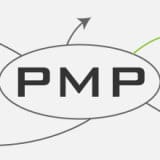PRINCE2 Foundation Certification Notes 19: Tailoring PRINCE2 to Project Environment

Important: The new PRINCE2® Foundation and Practitioner exams (PRINCE2® 2017) are available from 10 July 2017 (details of the changes here). Don’t worry, the changes are quite minor indeed as all the 7 principles, themes and processes remain the same. From now on until the end of 2017, candidates can take either the existing or updated English versions of the PRINCE2® exam. All PRINCE2® Foundation and Practitioner exams will be based on PRINCE2® 2017 from 1 January 2018. You can still seize the time to get certified based on the current version! Once you get PRINCE2® certified, your certification is still valid under PRINCE2® 2017 and onwards!
Introduction: As PRINCE2® methodology is intended to be applicable to any project in any industry but every single project is unique and different, PRINCE2® advocates tailoring of the PRINCE2® processes according to the size, cost, complexity, criticality, risk, etc. of individual projects in order to reap the best benefits from using PRINCE2® methodology. In fact, “Tailor to suit the project environment” is one of the 7 PRINCE2® principles.
Article Highlights
PRINCE2® approach to tailoring
- tailoring PRINCE2® in the correct way is called “full PRINCE2®” — using PRINCE2® as it is is not “full PRINCE2®”
- for a simple project, it is not the most efficient use of resources if the spending on management products and processes exceeds the deliverables — strike a balance between project control and administration costs
- PRINCE2® tailoring are documented in the Project Initiation Documentation (PID)
5 Steps of PRINCE2® Tailoring
- apply the PRINCE2® Principles (compulsory, otherwise it is not considered a PRINCE2® Project)
- adapt the PRINCE2® Themes (can be tailored, especially through customization of management strategies)
- adapt the PRINCE2® Management Products
- adapt the PRINCE2® Roles and Responsibilities (e.g. combine different roles — Team Manager and Project Manager)
- adapt the PRINCE2® Processes (all processes should be tailored)
Embedding vs Tailoring
- Embedding — adopt PRINCE2® across the whole organization, concerned about the standards, procedures and integration
- Tailoring — customize PRINCE2® by Project Manager for a particular project environment (scale, complexity, criticality, duration, geography or culture, etc., whether the Project is part of a Program or need to integrate the product development methodology with PRINCE2® project management)
Aspects of PRINCE2® Tailoring
- No. of Project Stages: multiple delivery stages vs single delivery stage (at least 2 stages — 1 initiation stage and 1 delivery stage)
- Project Board Composition: extended Project Board (with user/supplier groups) vs standard Project Board
- Combined Roles: e.g. Team Manager combined with Project Manager
- Work Packages: a single work package for simple Project vs multiple work packages
- Management Products: formally written vs checklists on note paper
- Communication Methods/Reporting/Requests: formally written vs informal oral reporting
Conclusion:
“Tailoring PRINCE2® to Project Environment” explains why it is necessary for PRINCE2® processes must be customized/tailored in order to increase the likeliness of success of PRINCE2® projects. Since PRINCE2® describes the generic approach to project management and every project is different in terms of scale, complexity, geography or culture, etc., tailoring PRINCE2® is not only recommended but necessary.
Wish you PRINCE2® Foundation Exam success!




 Hi, my name is Edward Chung, PMP, PMI-ACP®, ITIL® Foundation. Like most of us, I am a working professional pursuing career advancements through Certifications. As I am having a full-time job and a family with 3 kids, I need to pursue professional certifications in the most effective way (i.e. with the least amount of time). I share my exam tips here in the hope of helping fellow Certification aspirants!
Hi, my name is Edward Chung, PMP, PMI-ACP®, ITIL® Foundation. Like most of us, I am a working professional pursuing career advancements through Certifications. As I am having a full-time job and a family with 3 kids, I need to pursue professional certifications in the most effective way (i.e. with the least amount of time). I share my exam tips here in the hope of helping fellow Certification aspirants!






Very helpful notes